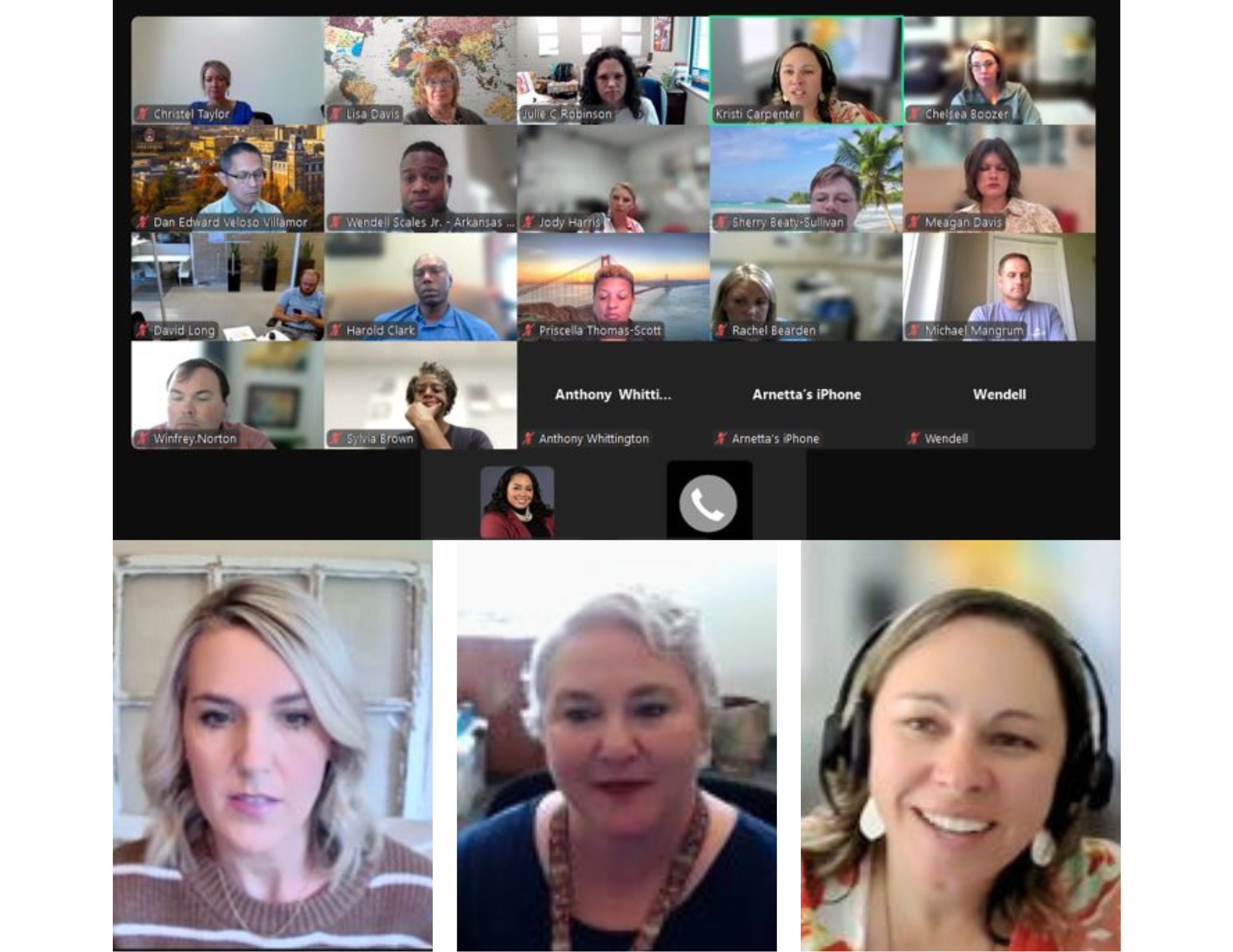Posts
Contact
Lisa Davis
Program Associate-Leadership
Phone: 501-671-2260
Email: ldavis@uada.edu
University of Arkansas System Division of Agriculture
Cooperative Extension Service
2301 S. University Avenue
Little Rock, AR 72204
LeadAR Class 20 June Virtual Seminar Recap
 The June session of LeadAR was a very insightful session focusing on commodity boards,
the library system, and preparing for the upcoming international study tour to Morocco.
The June session of LeadAR was a very insightful session focusing on commodity boards,
the library system, and preparing for the upcoming international study tour to Morocco.
As with any industry, agriculture commodity groups recognize the importance of marketing their products. Farmers, ranchers and importers come together to form commodity boards to focus on research and promotion of their commodities (such as beef, dairy, cotton, etc.) to increase consumer consumption.
Stacey Gorman, director of communications for The Cotton Board (and Class 19 alumna), joined to discuss the ins and outs of these boards. It is important to recognize that these boards are not funded by our tax dollars and only share research-based information, without disparaging other agriculture commodities. The focus on bridging the gaps between industry and farmers was very encouraging. By working together, The Cotton Board has reported billions in their return on investment from their partners through campaigns such as “Cotton, the fabric of our lives.”
The board is continually working on research and promoting sustainability. Gorman said she wished consumers understood more about the sustainability of natural fibers, such as cotton, compared to fabrics with plastics that never leave our landfills and end up in our water systems. Her story about collaborating with partners and across their industry was a very good model that we could all implement in our own sectors.
Jenn Wann with the Arkansas State Library system also shared a very similar story in her discussion of available resources. Libraries are so much more than “kids and books” and are not “no shushing and dusty, musty books.” They are checking out things from tools, fishing poles, cake pans to hot spots. Some libraries incorporate cafes to become the “community’s living room.” While some communities are starting micro libraries, like a vending machine for checking out and returning resources. Libraries are an integral part of their communities offering resources such as broadband access and the state system even has a program to provide materials for the visually impaired, available statewide. Small businesses can get their start utilizing 3D printers and photography resources in their local libraries. By collaborating with local resources, the opportunities become endless.
In the spirit of collaboration, Dr. Kristi Carpenter joined us from the University of Georgia to share her recent experience in Morocco and answer several questions many of us have been starting to consider. From getting the group excited for camel rides and fresh produce to making sure we are prepared with fans and to exchanging our currency, the main message focused on being open to new experiences. The blend of cultures from the native to Spanish, Portuguese, Arabic and French influences make Morocco a very interesting place. We must be willing to step outside our comfort zones and work to understand others, rather than immediately judge the differences. I know several of us are looking forward to understanding more about Morocco and their culture.
LeadAR is a program designed to help Arkansans broaden their understanding of issues and opportunities facing our state and strengthen their ability to make a difference. For more information about LeadAR, visit the website or contact Robinson, jrobinson@uada.edu, or Lisa Davis, ldavis@uada.edu.